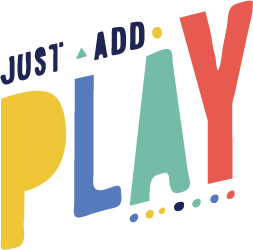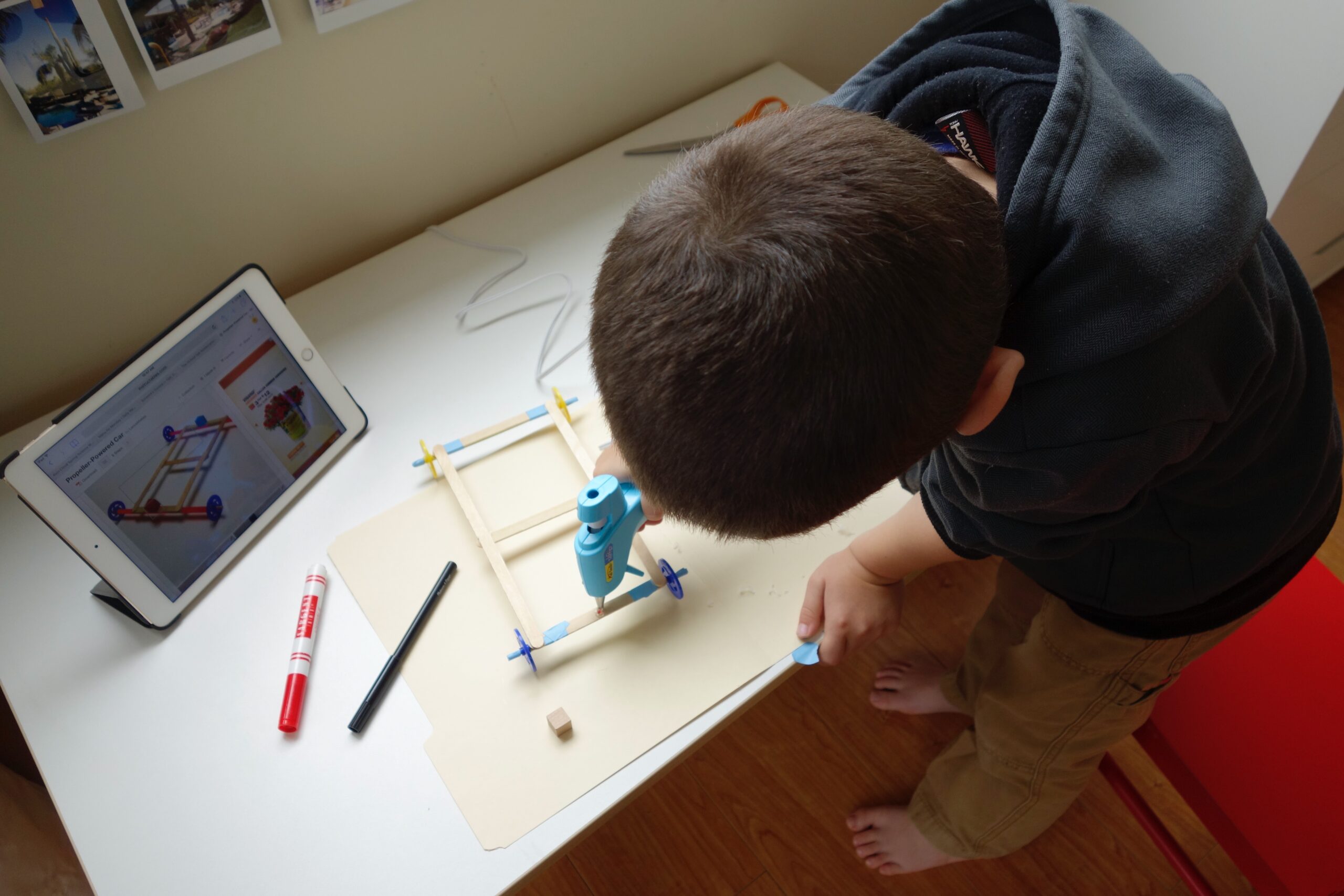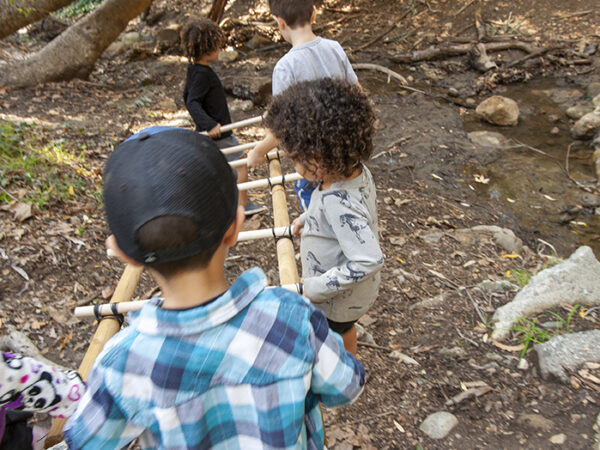Homeschooling is not schooling at home. Forget about trying to transplant what your children do in school to your dining room table. Let go of any visions that include hours upon hours of formal lessons. And please, don’t worry about having all the materials and gear of a fully-equipped classroom.
You do not need to do what teachers and schools do, for your children to learn.
I know this because I’ve seen it in action. The homeschooling families in our community all have different learning styles, philosophies, and routines. None of them emulate school. But their children are thriving — academically, socially, and creatively. So please, don’t worry about “doing school” or “keeping up.”
Instead, embrace the trade-offs of being at home and own your strengths.
Don’t worry if you aren’t a teacher.
You may not be a trained teacher, but would you want that role with your children, anyway? As parents, you know your children better than anybody else and you care about them more than even the most dedicated and loving school teacher possibly could. Don’t forget this! Our children need our emotional support, especially during covid schooling. They need our interest in their ideas and our presence while they’re separated from their friends and normal routines. Just being there with your children in their learning journey will serve them incredibly well. (And don’t worry, this doesn’t mean working with them every hour of the day! I’ll talk more about simple schedules, in a later post.)
Individual and small group learning is powerful.
But what about that learning journey? You don’t need to be versed in pedagogy to help your children learn. When you teach a child individually or in small groups, as in homeschooling, you start out with several advantages.
First, your children can work at their own pace. They don’t have to rush through material they don’t understand to keep up with others; and they don’t have to wait for others once they’ve mastered a concept. You can meet your children where they are. Second, you don’t need formal assessments to figure out what your children know. They will be comfortable asking questions as they go, and you can informally gauge their understanding by the look on their face and the work they produce. Plus, you can do this in real time, not two weeks later, after an exam. Finally, you have the flexibility to change your approach if something isn’t working.
For example, a friend of mine whose second grader was struggling with reading, noted how quickly his reading improved once he started homeschooling. Learning at his own pace meant he could make real progress, as compared to picking up what he could while trying to keep up with classmates. Not only did his skills improve, but his confidence did, as well. As another example, as a middle-school teacher, I once taught a failing student a full year’s worth of algebra material in 3 weeks of after-school tutoring so that he wouldn’t be left back a grade. I wasn’t an algebra teacher, so I had no special teaching methods. One-on-one teaching is just that effective. (If you’re curious about the research that backs this up, click here to read about Bloom’s Two-Sigma Problem.)
You don’t have to spend a full 7 hours a day working on “school.”
The advantages of small group learning have a wonderful side-effect. It saves a ton of time! Not only is instruction time more efficient, but there is less wasted time in general without the logistics of classroom learning. There is no attendance taking, no transition time between classrooms, no wasted time handing out papers, etc. School teachers know that in a 45 minute period, they’re lucky to get a solid 30 minutes of concentrated learning out of kids. Homeschooling allows us to take that time saved with logistics and put it into enrichment activities and free play time.
This is great news, especially for working parents, because it means that you don’t need to commit to a full day’s worth of instructional hours at home. Go ahead and breathe a sigh of relief!
Freedom from Schooling
Once you free yourself from the idea that homeschooling is schooling at home, you can shift your expectations from being a teacher to being a mentor. You can give your children a rare opportunity to pursue their own interests. Homeschooling affords children the time to delve deeply into whatever topics interest them. Children are innately curious. (Even if they’re not always curious about what we demand them to be!) Whether it’s improving their drawing skills, learning chess tactics, learning another language, or teaching themselves how to do stop-motion animation, if given the proper space, time, and support, children can meet their own learning goals. And this skill — the ability to direct one’s own learning and think critically about one’s own work — is more valuable than any single curricular learning objective from your school district.
You’ve got this.
We all have had to make constant adjustments during these crazy times. You’ve already had to adjust your schedule and take on more of the hands-on work of educating your children — on top of all the other stressors you likely now face. It’s one thing to decide to homeschool, and it’s another thing to be forced into homeschooling by a global pandemic during times of stress. So please, for your own sanity and the sanity of your children, don’t worry so much about what your kids are missing in school. Embrace the trade-offs inherent in homeschooling, and make this time what you want it to be for you and your children, without worrying about schooling.





